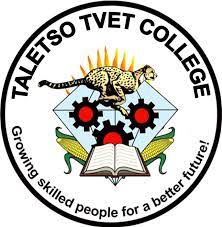Unisa Marking and Re-Marking Procedures (Remark or Recheck?) – A Detailed Guide
When it comes to academic performance, understanding the marking and re-marking procedures is crucial for students, especially at UNISA (University of South Africa), one of the largest and most recognized distance learning institutions in South Africa. Many students may wonder about the process of remarking and rechecking their exam scripts after receiving their results. Whether you feel that your grade doesn’t reflect your effort or you’re simply unsure about the procedure, knowing the correct steps to follow is essential.
In this comprehensive guide, we’ll explore UNISA’s marking procedures, the difference between remarking and rechecking, how to go about each process, deadlines, costs, and other important information that will ensure you are well-informed and ready to take action.
Understanding UNISA’s Marking Procedures
UNISA uses a robust and transparent marking system to evaluate student exams and assignments. Unlike traditional face-to-face universities, UNISA operates on a distance learning model, meaning the university depends on various methods for submitting assignments, writing exams, and communicating with students. The marking procedures are carefully designed to ensure fairness, accuracy, and confidentiality.
- Initial Marking:
- When you submit your assignments and exam scripts, they are first reviewed and graded by qualified examiners (or markers) who are experts in the respective fields.
- For assignments, tutors or academic staff mark them according to the rubrics provided by the course instructors.
- For exams, external examiners (who may or may not be associated with UNISA) are assigned to ensure impartiality and fairness. These external examiners ensure that marking is consistent across all student submissions for that particular subject.
- Moderation:
- Once the exams or assignments are graded, the marks are sent to moderators who ensure that marking standards are adhered to and that the grades awarded are fair and reflect the student’s work accurately.
- This process is vital in maintaining the integrity of the assessment system, ensuring that no student is unfairly penalized or rewarded.
- Final Submission of Results:
- After all moderation processes are completed, the final marks are uploaded to the UNISA Student Portal for students to view. This process can take some time depending on the volume of students and exams.
Re-Marking vs Rechecking: What’s the Difference?
Two of the most common terms students often encounter after receiving their exam results at UNISA are remarking and rechecking. Though they sound similar, they refer to very different procedures. Let’s clarify the distinction:
1. Recheck:
- A recheck is the process of verifying that your exam or assignment was marked correctly and that all sections of the assessment were included in the final score. This process does not involve re-evaluating your answers.
- If you request a recheck, UNISA will confirm whether:
- All answers were marked.
- The total mark has been added up correctly.
- No pages or sections were missed or omitted during the grading process.
Important to note: A recheck does not involve the re-evaluation of your answers. If you believe that your answers were incorrectly graded based on the marking criteria, you may need to request a remark.
2. Remark:
- A remark is a re-evaluation of your exam script or assignment. This means that an examiner will review your answers again, taking into account the marking guidelines and whether the marks awarded for each question were appropriate.
- If you feel that you were unfairly marked or that the grade does not accurately reflect your work, you can request a remark.
- In some cases, external examiners or different academic staff may be tasked with remarking your script to ensure impartiality.
Key Differences Between Recheck and Remark:
- Recheck: Ensures that all aspects of your assessment were processed correctly (no lost pages, correct total score).
- Remark: Re-evaluates your answers and checks if the marks awarded for each question were correct, potentially leading to a change in your grade.
When to Request a Recheck or Remark?
1. When to Request a Recheck:
You should consider requesting a recheck if:
- You believe there has been an error in the total mark calculation (e.g., marks were not added up correctly).
- A page or section of your exam paper seems to have been overlooked or missing.
- There was a technical error with your online submission (e.g., your exam didn’t get submitted properly).
A recheck typically costs less than a remark and is processed faster because it doesn’t involve a comprehensive review of the actual answers.
2. When to Request a Remark:
You may want to request a remark if:
- You believe the marks you were awarded don’t accurately reflect the quality or content of your responses.
- The feedback you received doesn’t seem consistent with your work or understanding of the exam content.
- You feel that the examiner may have misunderstood your answers or not marked according to the provided rubrics.
Remarking is a more thorough and time-consuming process as it involves the re-evaluation of your entire script. Therefore, it’s usually more expensive and can take longer to process.
How to Request a Recheck or Remark at UNISA
Here’s how to go about requesting a recheck or remark at UNISA:
Step 1: Log into Your UNISA Student Portal
- Visit the official UNISA website (www.unisa.ac.za) and log into your student portal using your student number and password.
- Make sure to check your exam results first and confirm the marks before proceeding.
Step 2: Check the Specific Deadlines
- UNISA has strict deadlines for requesting rechecks and remarks. Be sure to check the specific deadlines for each course as they may differ depending on your program. Requests are typically accepted within 10-21 days of the results being released.
Step 3: Select the Procedure (Recheck or Remark)
- Depending on whether you want a recheck or a remark, select the appropriate option in the student portal. Be specific about the course and exam you are referring to.
- Fill in the relevant details and pay the required fee. Both rechecks and remarks typically require a non-refundable fee, which may vary based on the nature of the procedure.
Step 4: Make Payment
- Payments for rechecks and remarks can usually be made via the UNISA payment system. Ensure that you save proof of payment for reference.
- Be aware that remarking fees are often higher than recheck fees due to the more involved process.
Step 5: Wait for the Outcome
- Once your request is submitted, the university will process your application. If a remark is requested, the result may be different, and you may receive an updated grade.
- For a recheck, you will be notified whether any errors were found in the calculation of your original score.
Step 6: Receive Your Updated Results
- After the recheck or remark process is complete, you will be notified of any changes to your grade. This can take anywhere from two weeks to a month, depending on the type of procedure.
Fees for Rechecking and Remarking
UNISA charges fees for both rechecks and remarks. The fees are subject to change, so it’s important to consult the official UNISA website or your student portal for the most current pricing. Typically:
- Rechecking fees are lower because they simply involve verifying the accuracy of your marks.
- Remarking fees are higher due to the additional time and resources required to have your script re-evaluated.
Note: If you submit a request and the grade does not change after remarking, the fees are non-refundable.
Key Takeaways
- Recheck: Verifies the accuracy of the marks, including the correct totaling and checking for missing pages. It does not involve re-evaluating your answers.
- Remark: A full re-evaluation of your exam paper to assess whether the correct marks were awarded for your responses.
- Deadlines: Request for recheck or remark within the specific deadline given by UNISA after exam results are released.
- Fees: Both services require a fee, with remarking generally being more expensive due to the more involved process.
- Student Portal: All requests and payment processes can be done through the UNISA Student Portal.
If you’re unsure about your exam marks at UNISA, understanding the difference between remarking and rechecking is key. Whether it’s a minor mistake in totaling your marks or a more significant issue with how your answers were graded, both options offer students a way to ensure they get the grade they deserve.
Good luck, and may you get the results you’ve worked hard for!



